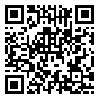Volume 4, Issue 3 (Journal of Science and Technology of Greenhouse Culture 2013)
2013, 4(3): 89-99 |
Back to browse issues page
Abstract: (11827 Views)
This research was conducted in order to investigate the possibility of using palm wastes compost as substrate for cultivation of Dieffebnbachia amoena at five levels (ratio of 0, 25, 50, 75 and 100% v/v as substitute for peat) and peat: perlite (4:1) treatment as control, as a randomized complete blocks design with three replications. Chemical and biological properties of palm wastes compost, physico-chemical characteristics of growth media and growth indices after 7 months were evaluated and measured. Results showed that carbon to nitrogen ratio (C/N=18) and germination test (71.25%) indicated that the palm wastes compost is mature and stable. Nutrients content, pH and electrical conductivity of compost was higher than peat. The physico-chemical characteristics of substrates showed that 75% compost ratio was in the ideal range. Evaluation of the growth indices such as plant height, stem diameter, fresh and dry weight of shoots, and fresh weight of roots shows that the highest and the least growth rate was obtained from 75% and 100% compost treatments, respectively. In general, palm wastes compost is a suitable substrate for growth of Dieffenbachia and could be replaced up to 75% with imported peat in peat-perlite mediums.
Type of Study: Research |
Received: 2013/08/22 | Accepted: 2013/09/24 | Published: 2013/09/24
Received: 2013/08/22 | Accepted: 2013/09/24 | Published: 2013/09/24
| Rights and permissions | |
 |
This work is licensed under a Creative Commons Attribution-NonCommercial 4.0 International License. |



